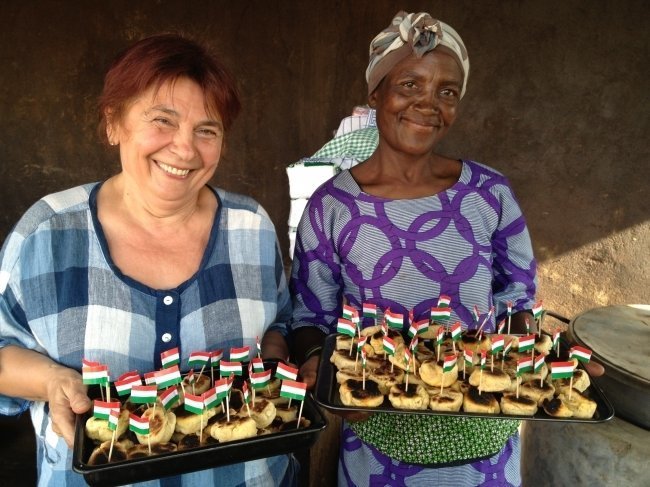African-Hungarian Union: Mission of charity in Africa and in Hungary

Change language:
Medical missions, supporting orphan children, collecting donations, hospital constructions. Founded in the summer of 2006 by Sándor Balogh, a businessman committed to Africa’s issues and other ten private individuals, the African-Hungarian Union performs diverse charity works on the Dark Continent. Since the foundation, during the last decade, many scientists, entrepreneurs and volunteers joined AHU’s activities, Globs magazine reports.
By: Ildikó Karakai Photos: African-Hungarian Union
The AHU in figures
The African-Hungarian Union organizes aim schemes providing long-term solutions primarily for highly disadvantaged social groups and minorities. It all began in Congo many years ago. The AHU sent Hungarian doctors there in the frame of The Children of War humanitarian aid. Since then, it has organized 13 missions, all together in six countries: the Democratic Republic of the Congo was followed by Mali, Madagascar, Guinea, Malawi and Uganda.
More than 30 doctors took care about nearly 40000 people over the years. They have cured in jungle, schools, under the stars and even in prison. They have treated malaria, bone having been fractured for months, people suffering in AIDS, heart with holes, purulent wounds, they have assisted at complicated childbirths and treated maladies still unknown in Europe. This is when these people have seen a doctor for the first and maybe for the last time in their lives
Challenges and milestones
According to Globs magazine, doctors undertake this service during their holiday, and they even bear part of the costs themselves. A mission like this abounds in challenges. Even the most essential things are unavailable in areas that are difficult to reach. Piped water, electricity, internet, radio and TV are only a dream, the roads are difficult to travel; and, as for the difficulties of the healthcare, records are missing, and the rules of vaccination order are not followed either, what is more, the notion of vaccination is totally unfamiliar to them. There are not any medical equipments, CT scanner, MR machine, or laboratory; doctors carry the consulting room in their backpack on the path, and they give the medicines, too. And often they meat fate because there is not any hospital where patients who need complicated operations could be sent to. However, Hungarian doctors and practitioners travelled to Africa in the autumn of 2016 to perform operations for the first time. During two weeks, they were carrying out neck and head operations.






